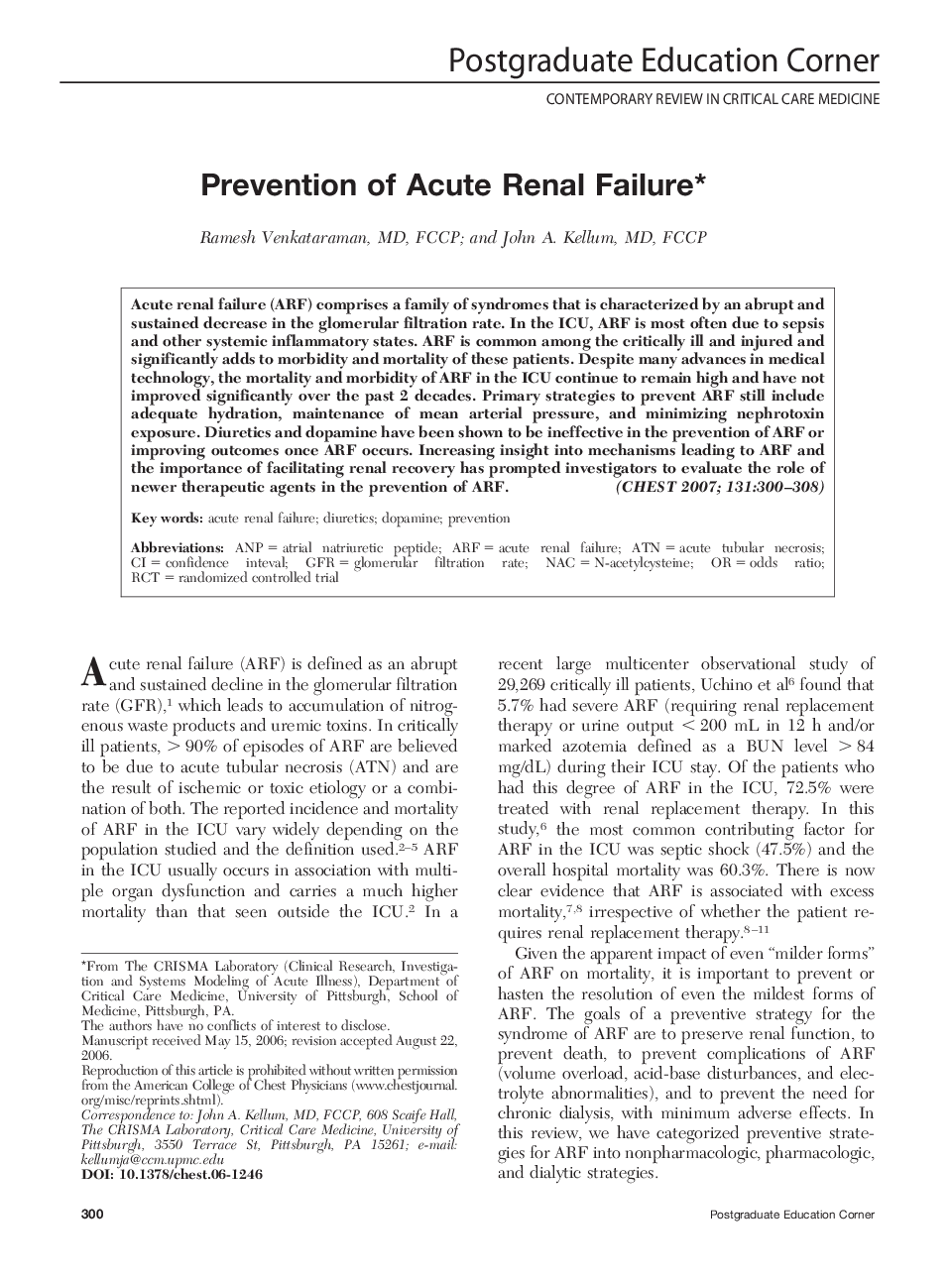| Article ID | Journal | Published Year | Pages | File Type |
|---|---|---|---|---|
| 2905551 | Chest | 2007 | 9 Pages |
Acute renal failure (ARF) comprises a family of syndromes that is characterized by an abrupt and sustained decrease in the glomerular filtration rate. In the ICU, ARF is most often due to sepsis and other systemic inflammatory states. ARF is common among the critically ill and injured and significantly adds to morbidity and mortality of these patients. Despite many advances in medical technology, the mortality and morbidity of ARF in the ICU continue to remain high and have not improved significantly over the past 2 decades. Primary strategies to prevent ARF still include adequate hydration, maintenance of mean arterial pressure, and minimizing nephrotoxin exposure. Diuretics and dopamine have been shown to be ineffective in the prevention of ARF or improving outcomes once ARF occurs. Increasing insight into mechanisms leading to ARF and the importance of facilitating renal recovery has prompted investigators to evaluate the role of newer therapeutic agents in the prevention of ARF.
